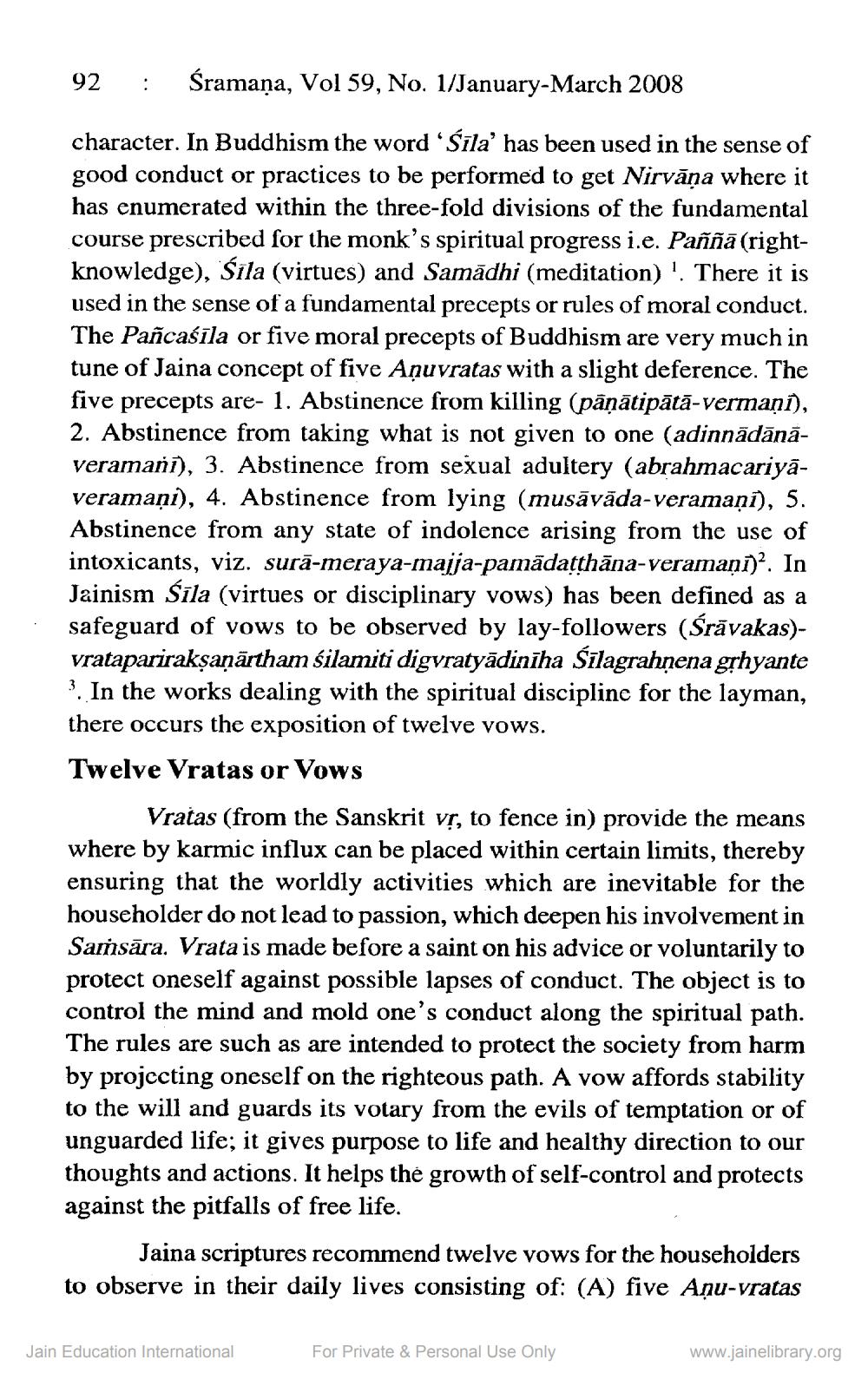________________
92
:
Śramaņa, Vol 59, No. 1/January-March 2008
character. In Buddhism the word 'śīla' has been used in the sense of good conduct or practices to be performed to get Nirvāṇa where it has enumerated within the three-fold divisions of the fundamental course prescribed for the monk's spiritual progress i.e. Paññā (rightknowledge), Sila (virtues) and Samādhi (meditation)'. There it is used in the sense of a fundamental precepts or rules of moral conduct. The Pañcaśīla or five moral precepts of Buddhism are very much in tune of Jaina concept of five Aņuvratas with a slight deference. The five precepts are- 1. Abstinence from killing (pāņātipātā-vermani), 2. Abstinence from taking what is not given to one (adinnādānāveramani), 3. Abstinence from sexual adultery (abrahmacariyaveramaņi), 4. Abstinence from lying (musāvāda-veramani), 5. Abstinence from any state of indolence arising from the use of intoxicants, viz. surā-meraya-majja-pamādatthāna-veramaņi)?. In Jainism śīla (virtues or disciplinary vows) has been defined as a safeguard of vows to be observed by lay-followers (Śrāvakas)vrataparirakşaņārtham silamiti digvratyādinīha Śīlagrahạena gļhyante 3. In the works dealing with the spiritual discipline for the layman, there occurs the exposition of twelve vows. Twelve Vratas or Vows
Vratas (from the Sanskrit vị, to fence in) provide the means where by karmic influx can be placed within certain limits, thereby ensuring that the worldly activities which are inevitable for the householder do not lead to passion, which deepen his involvement in Samsāra. Vrata is made before a saint on his advice or voluntarily to protect oneself against possible lapses of conduct. The object is to control the mind and mold one's conduct along the spiritual path. The rules are such as are intended to protect the society from harm by projecting oneself on the righteous path. A vow affords stability to the will and guards its votary from the evils of temptation or of unguarded life; it gives purpose to life and healthy direction to our thoughts and actions. It helps the growth of self-control and protects against the pitfalls of free life.
Jaina scriptures recommend twelve vows for the householders to observe in their daily lives consisting of: (A) five Aņu-vratas
Jain Education International
For Private & Personal Use Only
www.jainelibrary.org




